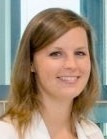Salazar and Hawley Laboratory
Lab Members
Juan C. Salazar, M.D., M.P.H., FAAP
Juan C. Salazar, M.D., M.P.H., FAAP, is physician-in-chief at Connecticut Children’s Medical Center and chair of the Department of Pediatrics at the UConn School of Medicine. In addition to these roles, Dr. Salazar is professor of Pediatrics and Immunology at the School of Medicine and academic division head of Pediatric Infectious Diseases and director of the Pediatric and Youth HIV program at Connecticut Children’s.
Dr. Salazar joined Connecticut Children’s and UConn in 1998. He is NIH funded and actively engaged in translational infectious disease research at UConn Health. He also collaborates with translational and clinical researchers in Southern China and in Cali, Colombia. In addition, Dr. Salazar is the current chair of the Board of Directors of the Child Health and Development Institute and a member of the Board of the Children’s Fund of Connecticut.
Dr. Salazar received his medical degree from the Universidad Javeriana, in Bogota, Colombia, and a Master’s in Public Health, from the University of Minnesota. He completed his residency in pediatrics at UConn Health, where he served as chief resident, and a postdoctoral fellowship in pediatric infectious diseases at the University of Minnesota.

Kelly L. Hawley, Ph.D., Faculty - Assistant Professor
Kelly L. Hawley obtained her B.S. degree in Veterinary and Animal Sciences from the University of Massachusetts in 2009. In September of 2012, she received her Ph.D. degree in Animal Biotechnology and Biomedical Sciences from the University of Massachusetts. Her dissertation research investigated the molecular mechanisms that regulate Complement Receptor 3-mediated phagocytosis of B. burgdorferi. She is the proud recipient of the 2013 Snoeyenboes Excellent in Research Award. Her postdoctoral research focuses on macrophage-T. pallidum interactions ex vivo to understand the paradox of human syphilis. Dr. Hawley was awarded the 2016 Robert E. Leet & Clara Guthrie Patterson Trust Fellowship, concentrating on the elucidation of the innate and adaptive immune interplay in human syphilis. Dr. Hawley is currently a Research Scientist in the Division of Infectious Diseases at Connecticut Children’s Medical Center. She also holds a faculty appointment in the Department of Pediatrics at UConn Health where she is continuing her investigation of the human’s natural immune response to syphilis infection from endemic areas across the globe.

Carson Karanian
Ms. Karanian obtained a bachelor's degree in general science with an environmental studies track in 1995 from Virginia Commonwealth University in Richmond, Virginia. She previously worked as a laboratory assistant at Pfizer in New London, Connecticut. Since 2003, she has worked as a research assistant II/lab manager in the Spirochete Research Laboratories. She is an expert in T. pallidium rabbit passaging, Borrelia burgdorferi culture, human and murine flow cytometry, epifluorescent and confocal microscopy, human monocyte and murine macrophage ex vivostimulation techniques and a variety of molecular techniques.
CIDEIM Laboratory Members

Jonny Alejandro Garcia, M.D.,
Jonny Garcia obtained his medical degree from Universidad del Valle in 2017 and he was selected as a fellow of CIDEIM’s Clinical Research training program in November of 2017 based on his conviction to pursue a research career and outstanding academic record. His responsibilities include providing support in the development of research protocols, project management of clinical studies in human subjects and running of clinical studies.

Lady Giovanna Ramirez, B.Sc., M.Sc.
Lady Ramirez is a microbiologist, she received her M.Sc degree in Biomedical Science from Universidad del Valle in 2012. Her thesis was focused on the relationship between innate immune responses and the pathogenesis of secondary syphilis. She has eleven years of experience in flow cytometry as well as cell and molecular biology methods applied to the understanding of the host-pathogen relationship of infectious diseases. She leads the laboratory of immunology at CIDEIM and provides extensive support in the writing of research proposals, development of scientific publications and training of graduate and undergraduate students.

